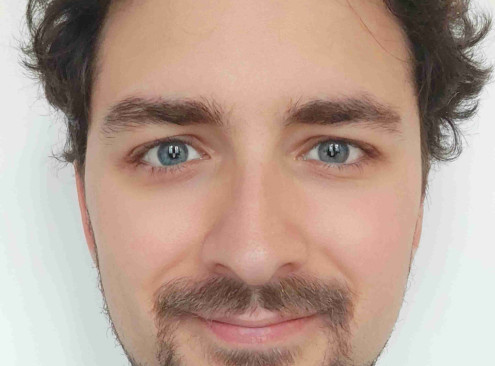© Pint of Science, 2024. All rights reserved.
People, not numbers: how data science can give cancer patients a voice
Sofia Spampinato
(PostDoc at Erasmus MC)
In oncology, we aim to maximize efficacy and minimize side effects to ensure patients’ well-being. However, response to cancer, treatment and aftermath also depends on personality traits, lifestyle habits, social dynamics, and other factors not easily captured. Data directly generated by patients via questionnaires, apps and chatbots can provide new insights, but how to manage such a large amount of information? Being able to handle complex data, Artificial Intelligence (AI) is a promising tool. Be ready to explore the potential (and scepticism) of AI applications for patient-generated data.

Space Ice! Now Extra-Toxic
Joan Enrique-Romero
( PostDoc researcher)
You may have heard the sentence “We are stardust”, but it is more like icy stardust!
In this talk I will describe how the chemical building blocks of life are formed in space, what the role of interstellar icy dust is, and I will finish off with a real example from my latest research. In this case I will show how hydrogen cyanide
(HCN), a toxic substance, is related to these chemical building blocks of life, and how it is formed in Space.
In this talk I will describe how the chemical building blocks of life are formed in space, what the role of interstellar icy dust is, and I will finish off with a real example from my latest research. In this case I will show how hydrogen cyanide
(HCN), a toxic substance, is related to these chemical building blocks of life, and how it is formed in Space.

Map data © OpenStreetMap contributors.